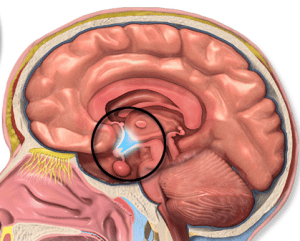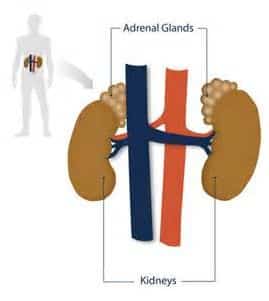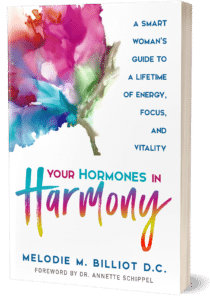Hot Flashes: A Self-Help Guide
If you understand what causes hot flashes, you will have the basics to understand some of the most common problems caused by perimenopause and menopause.
If you don’t have experience with hot flashes, here’s what happens:
Hot flashes can last from a few seconds to ten minutes. They start with a sudden rush of warmth spreading through your chest, neck, and face. Your heart rate will become rapid with a feeling of anxiety. Your skin will appear red and blotchy, and you may sweat throughout your upper body. As the hot flash lets up, you may feel chilled from the sweat. When this happens in your sleep, you wake to all these symptoms, plus wet pajamas, which must be changed—often while you are freezing from being soaked. NOTE: The above should be required reading for husbands who have no clue what you are experiencing. Hot flashes can range from a mild nuisance up to a significant health problem. They can happen any time of day or night and can cause long-term sleep problems. Most women who have hot flashes experience them at least daily. On average, you’ll deal with hot flashes for seven to ten years, starting with perimenopause or menopause.
Download Your Free Guide
Anxiety, Worry & Depression
Simple things you can do right now to lighten your load
Download Your Free Guide
Anxiety, Worry & Depression
Simple things you can do right now to lighten your load
The Secrets of Avoiding or Improving Hot Flashes

Hypothalamus
Hot flashes occur because of changes in your estrogen levels. As you approach and move through menopause, your ovaries reduce the output of two hormones: progesterone and estrogen. It’s the lowered estrogen that’s responsible for hot flashes. Low estrogen causes the hypothalamus (a hormone gland in your brain that does many things, including controlling your thermostat) to become sensitive to tiny body temperature changes. If your super-sensitive hypothalamus decides your body is too warm, it can initiate a chain reaction of events to cool you off: the hot flash.
Adrenal glands to the rescue!

Adrenal Glands
Healthy adrenal glands can often make up a part of the estrogen production lost from the ovaries during menopause. Sadly, our society has an epidemic of exhausted adrenal glands, which has produced millions of miserable menopausal women.
What stresses adrenal glands?
- Eating sugary foods, processed carbs (bread, rice, pasta), wine and alcohol, fruit juices, and too much fruit.
- Eating on an irregular schedule and skipping meals.
- Inadequate sleep.
- Burning the candle at both ends—a high-stress lifestyle.
- Being sedentary—not getting enough activity or exercise.
Reading this list, you can see why adrenal insufficiency is an epidemic in our society!
What to do, and the order to do it in!
If you want to improve your hot flashes, the most important thing to do is take brisk walks for 30 minutes or more (or equivalent) at least every other day. Then, the second most important thing to do is stop raising your blood sugar. Here’s the list of adrenal “repair” actions:
- Stop raising your blood sugar level (stop eating cake, candy, cookies, soda, wine and cut way back on bread, rice, pasta, and white potatoes). Read details HERE.
- Don’t skip meals. Eat something every four hours, and eat within 1 ½ hours of waking in the morning.
- Do at least 30 minutes of brisk walking (or equivalent) at least every other day.
- Get good sleep! (Set a stable bedtime, wind down for an hour before bed, avoid blue screens near bedtime.)
- Reduce your stress. Breathing exercises, yoga, walks, “me” time. Do what it says in THIS LINK.
When is the best time to start helping your adrenal glands to become healthier? Many years ago! But if you’re in trouble now and it’s possibly because of your adrenals, there’s a lot of improvement available. Get started with the actions listed, and talk to me if you need more help. 
Need Help?
Talk to me! Everyone needs an individual program to improve their health. I can help you find out precisely what YOU need to do to improve your hormone balance and reduce your health problems from menopause.

